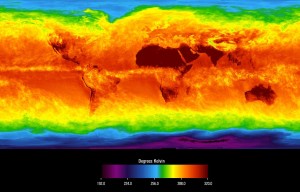
The global heat-wave continues to take its toll. In southern Japan, at least eight people died over the weekend due to the heat, with an estimated 1,500 hospitalised.
The heatwave in the country comes days after flooding and landslides killed over 200 people.
This last month have seen record temperatures across the globe, even in places used to being red hot. In Africa, for example, earlier this month, the Washington Post reported that “The planet’s hottest continent probably just endured its hottest weather ever reliably measured. An Algerian city soared to 124.3 degrees (51.3 Celsius) Thursday, adding to the onslaught of records for extreme heat set around the planet during the past 10 days.”
The planet boils by day and also by night. At Quriyat, on the coast of Oman, overnight temperatures have been measured at 42.6C, believed to be the highest “low” temperature ever recorded.
But it is not just Africa, Asia and the Middle East; Northern Europe and North America have reported record temperatures. Some 80 million Americans have been placed under heat warnings in recent weeks.
Earlier this month, a “monster heat dome” was said to have consumed Southern California, for example, with temperatures at the University of Los Angeles at 111 degrees, which surpassed the hottest temperature ever recorded there, some eighty years ago.
And it is not just in Japan where people are dying due to the heat. Over 50 people have died in Quebec in Canada, according to reports.
Even places which we normally think of as cold have experienced record temperatures, with Northern Siberia experiencing temperatures some 40 degrees above normal earlier this month.
Meteorologist Nick Humphrey wrote on his blog: “It is absolutely incredible and really one of the most intense heat events I’ve ever seen for so far north … 2018 has unfortunately been a prime example of global warming’s effect on the jet stream. And northern Siberia has been getting blowtorched by heat that refuses to quit because of an ongoing blocked pattern favorable for intense heat.”
As usual the climate deniers will argue that all of this does not prove that man-made climate change is happening. As the old English saying goes “One swallow does not make a summer”. Indeed, as the Washington Post notes: “No single record, in isolation, can be attributed to global warming. But collectively, these heat records are consistent with the kind of extremes we expect to see increase in a warming world.”
But it seems that more and more people are making the connection between the extreme heat and man-made climate change. The latest survey by the University of Michigan and Muhlenberg College, published last week, reveals that “a record 60% of Americans now think that global warming is happening and that humans are at least partially responsible for the rising temperatures.”
Indeed, the survey reveals that “More Americans think that there is solid evidence of global warming than at anytime since 2008 with 73% maintaining this view.”
There remains a huge political divide though between Democrats and Republicans, “with 78% of Democrats now holding the view that humans are at least partially responsible for warming on the planet compared to only 35% of Republicans.”
“There’s lots of evidence that contemporary weather is a contributing factor to belief in climate change,” Chris Borick, says the director of the Muhlenberg College Institute of Public Opinion. “But there are other factors. People are telling us they are experiencing a climate that isn’t what they remember in the past and the evidence itself, such as declining polar ice, is having an effect. Americans are moving to a lot more confident space on this.”
The media, though, continues to not join the dots. Leah C. Stokes, is an assistant Professor of Environmental Politics at UC Santa Barbara. He noted in the LA Times yesterday that journalists “need to start telling the whole story” linking extreme weather to climate change.
Although the media “reports on each fresh disaster — every fire, every hurricane, every flood — it tends to stop short of linking extreme weather events to global warming, as though the subject were the exclusive province of reporters on the climate beat.”
He adds: “As a result, we’re missing what is arguably the biggest story of all: The climate we knew is no more. We’ve already warmed the planet, whether we deny it or not.”
So as more and more Americans link extreme weather to climate change, its time the media did so too. It is time they told the whole story.

This is the power that sponsors- big ag and oil – have over the media. Weather reporters , our link to science , protect their jobs by avoiding the” c “word like the plague while the public remains uninformed and ignorant. Wake up people !